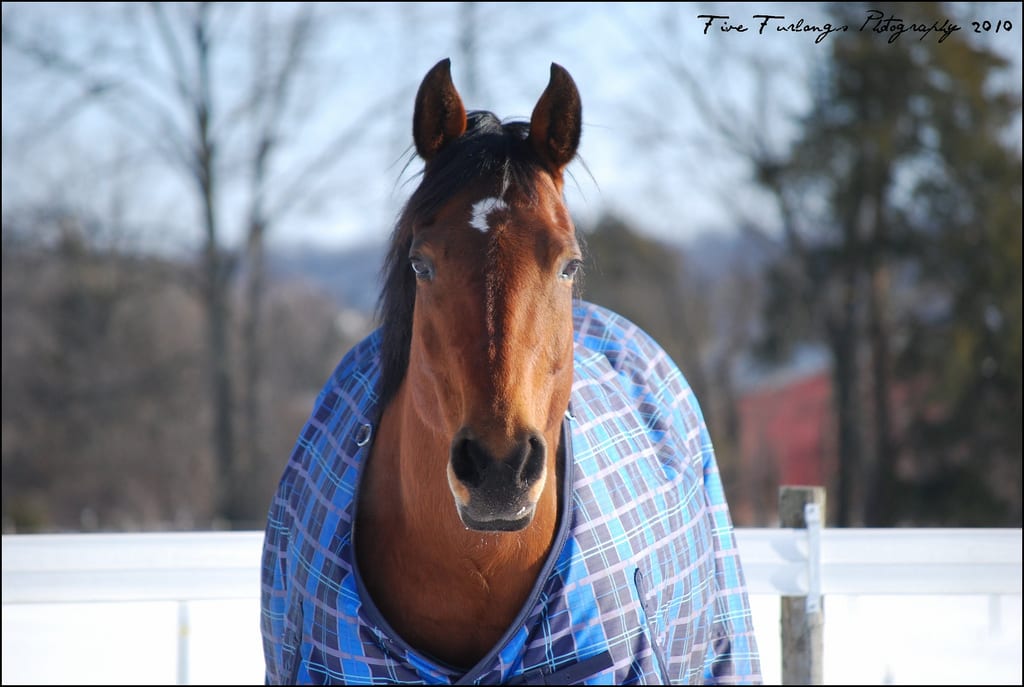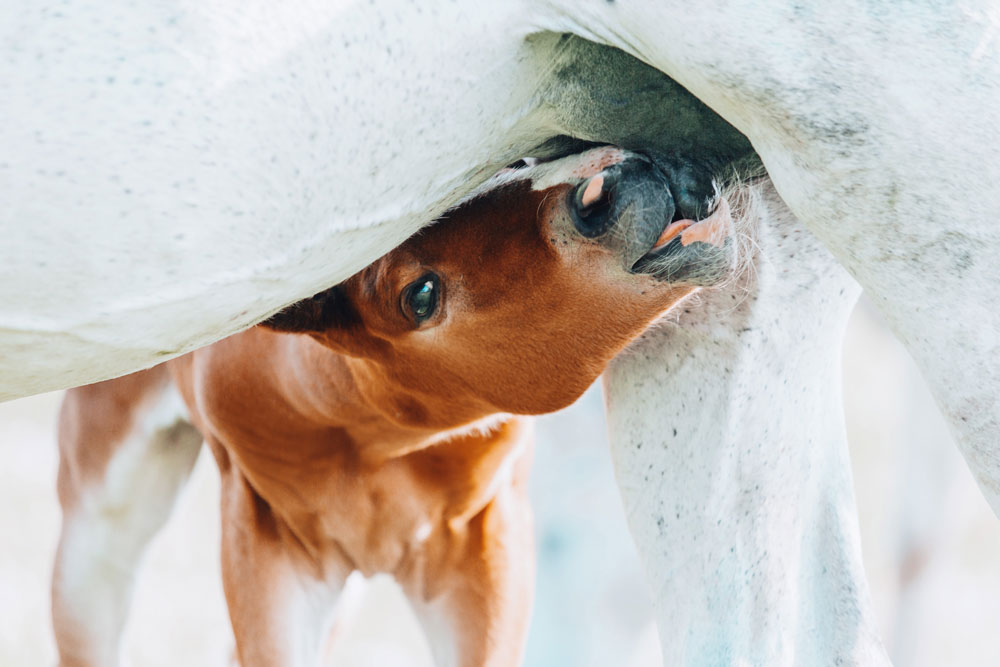 In Monday Myths we debunk common misconceptions about a range of topics regarding equine digestive health and care. These are real statements made by real horse people. Have a question or topic you would like to see covered? Submit your idea here.
In Monday Myths we debunk common misconceptions about a range of topics regarding equine digestive health and care. These are real statements made by real horse people. Have a question or topic you would like to see covered? Submit your idea here.
Statement: I give my horse a weekly bran mash to help prevent colic.
It’s easy to see why many owners and barn managers love the bran mash: a steaming warm bucket of sweet smelling wheat or rice bran laced with carrots and apples seems like a pleasant and healthy treat in relation to a bland diet of hay and a little bit of grain. It just has to be good for my horse, right?
Wrong. Many owners subscribe to the theory that a weekly bran mash is good for preventing colic, especially during cold seasons, or for bringing an aching gut back to health. But reality is that these practices don’t do much good, and could actually be detrimental to gi tract health.
The Theory Behind Bran Mashes and Equine Colic
A bran mash is simply wheat or rice bran mixed with boiling water until it reaches the desired consistency and allowed to steep for 15 minutes. Many people add carrots, apples, molasses, or oats to make it more enticing to their horses.
Horse men and women have fed bran mashes for decades for various reasons such as after sickness, after foaling, and in cold weather to prevent colic. They believed (and many still do) that bran would help feed to move more smoothly through the digestive tract, preventing the impactions that tend to increase when it’s cold. This belief was supposedly “verified” with the loose stools horses would have for several days after ingesting the mash.
Why Bran Mashes Won’t Prevent Colic in Horses
Research indicates that feeding horses a bran mash plays no role in reducing colic. One particular study done by Cornell University conclusively showed that wheat bran, in fact, does NOT increase the moisture content of a horse’s stool. Even when fed it in its wettest state, the bran mash only increased moisture content of the stool by 3%.
Also contrary to popular belief, a bran mash will not help a horse stay warm in winter. It may feel good going down the throat, but it does nothing to increase the horse’s energy output – which is what actually keeps horses warm.
Bran Mashes May Be Detrimental to Equine Gut Health
If bran mashes don’t increase the moisture content of a horse’s stool, what then really causes the loose stool for days after feeding one?
Remember how the equine hindgut works: each horse has its own unique population of beneficial microorganisms that assist in the digestion process. Any time there is a sudden change in a horse’s diet, like feeding a weekly bran mash, the types of bacteria in the hindgut are affected. The population becomes unbalanced, bacteria dies off, endotoxins are released. And the external symptom of these changes are loose stool.
It’s the same reason any changes in feed need to be made gradually over a period of weeks.
Better Methods for Preventing Colic
If a bran mash doesn’t actually do anything to prevent impaction colic, what does?
Especially in winter, hydration is critical. Ensure your horse is drinking plenty of fresh, warm water. Free access to quality forage is ideal for gi tract health and also helps provide the energy horses need to stay warm. Encourage movement, which is important to gut motility. Learn more about how to specifically
reduce the risk of impaction colic in winter.
For more information on how feeding and management contributes to colic risk and steps you can take to reduce your horse’s risk for colic, visit the Crusade Against Equine Colic and join in the discussion during the month of June during Colic Awareness Month.
Bran mashes prevent colic = myth. The beliefs behind why bran mashes prevent colic have been scientifically debunked, and the practice may actually contribute to poor gi tract health which may be a factor in colic.
Photo:
Five Furlongs, used by permission
CC 2.0

 In Monday Myths we debunk common misconceptions about a range of topics regarding equine digestive health and care. These are real statements made by real horse people. Have a question or topic you would like to see covered? Submit your idea here.
In Monday Myths we debunk common misconceptions about a range of topics regarding equine digestive health and care. These are real statements made by real horse people. Have a question or topic you would like to see covered? Submit your idea here.




